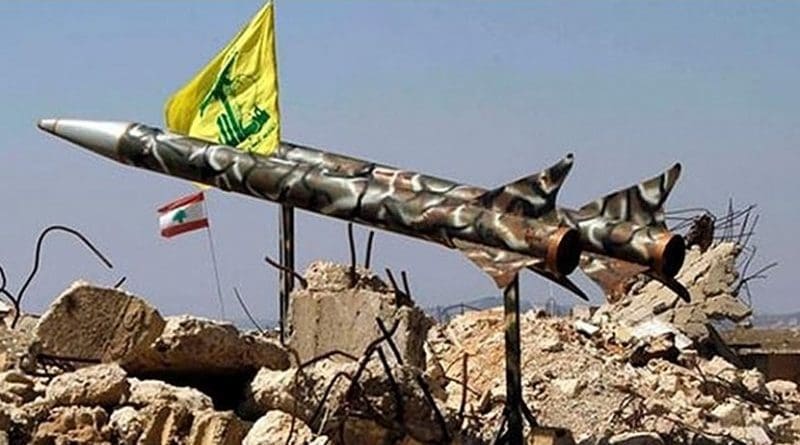Hezbollah’s Game Of Presidential Patience May Not Work This Time – OpEd
By Arab News
By Dr. Dania Koleilat Khatib*
Lebanon has had no president since the departure from office of Michel Aoun in October last year, and the jockeying for position continues. Hezbollah and the Amal movement were banking on Christian division to push their candidate, Sulaiman Franjieh, but the Christian blocs surprised them by supporting the candidacy of Jihad Azour — regional director of the International Monetary Fund and finance minister in Fouad Siniora’s government from 2005 to 2008.
Hezbollah says its man is the “natural candidate” because the other camps cannot agree on one.Parliamentary Speaker Nabih Berri, a Hezbollah ally, refuses to call a session of parliament to elect a president unless he is sure that one of the candidates can obtain the necessary 65 votes. Hezbollah, like the Iranians, is playing for time — a game of patience that has been rewarding for it in the past. When Aoun was elected president in 2016, it was only after Berri had closed the parliament for two and a half years until the opposition finally agreed. Every time Hezbollah stands firm it gets what it wants, and its stubbornness haspaid off — but this does not seem to be the case this time. The question is whether Hezbollah will understand that.
In 2016, the Lebanese Forces caved in to Hezbollah’s demands after party leader Samir Geagea told his supporters the country could no longer afford to have a presidential vacuum. The now defunct Future Group also supported Aoun’s candidacy. The hope was that once elected he would become a president for all Lebanese, less attached to Hezbollah, but that hope was misplaced: many judge the past six years to be the worst the country has ever seen.
Hezbollah is in a difficult position, both domestically and internationally. It doesn’t have enough votes in the parliament to elect its choice of president without help. Also, the presidency is reserved for a Christian. Technically a president is elected with 65 votes regardless of where those votes come from, but in practice a president who does not command a majority of Christian votes will not be viewed as legitimate.
Hezbollah’s candidate Franjieh is rejected by the major Christian factions, the Lebanese Forces, the Free Patriotic Movement and the Kataeb Party. Nor is he accepted internationally: it is unlikely that the Gulf states have an appetite to deal with him and his ilk. So even if Hezbollah manage to push him to the presidency, the question is what to do the day after.
Meanwhile the idea of federalism, even of partition, is becoming common in the Lebanese public discourse, especially in Christian circles. Several factions don’t want to live under the jurisdiction of Hezbollah, but nordo they want another civil war, so their view is that the best solution is for each camp to go its own way. Partition or federalism would be bad news for Hezbollah. Former Israeli Prime Minister Ariel Sharon once had a plan to divide Lebanon and squeeze the Shiites in the south into a statelet that Israel could crush. Soif Hezbollah push for a president unrepresentative of the Christians, what if Mount Lebanon declared itself a separate entity? Would Hezbollah want to force the Christians to be under its jurisdiction?
The group should not underestimate the prevalent anti-Hezbollah sentiment, which the election of Franjieh would only intensify. What is making matters worse, and giving the group hope, is the French position. Though in public France has declared it has no candidate, in the background Paris has been pushingFranjieh as a president in return for having the judge and diplomat Nawaf Salam as prime minister. This formula has been rejected by the opposition, as it is too reminiscent of the Aoun-Saad Hariri deadlock.
Now the two major Christian factions have agreed on Azour as their candidate. Policy observers in Lebanon say this is a maneuver, as Free Patriotic Movement leader Gebran Bassil cannot be serious about confronting Hezbollah with Azour. Equally, the Lebanese Forces will not accept Azour because his brother Tony, a contractor, has a business relationship with Bassil. That the Christian rivals have agreed on a name has twopurposes. The first is to send a signal that the presidency is a Christian position and that the Christians have a say on who becomes president. The second is to corner Berri into calling a parliamentary session to elect a president.
Samir Geagea once proposed that all members should simply attend parliament and vote; if no candidate gained the necessary number votes, they should start negotiating on a third name. Azour’s candidacy maybe a tactic to corner Hezbollah and Amal into giving up on Franjieh and breaking the deadlock. The question is, will this tactic work in pushing the different parties to agree on a president, or we are heading toward a continuing vacuum and further deterioration of the Lebanese state? The weeks ahead will tell.
• Dr. Dania Koleilat Khatib is a specialist in US-Arab relations with a focus on lobbying. She is president of the Research Center for Cooperation and Peace Building, a Lebanese nongovernmental organization focused on Track II.

